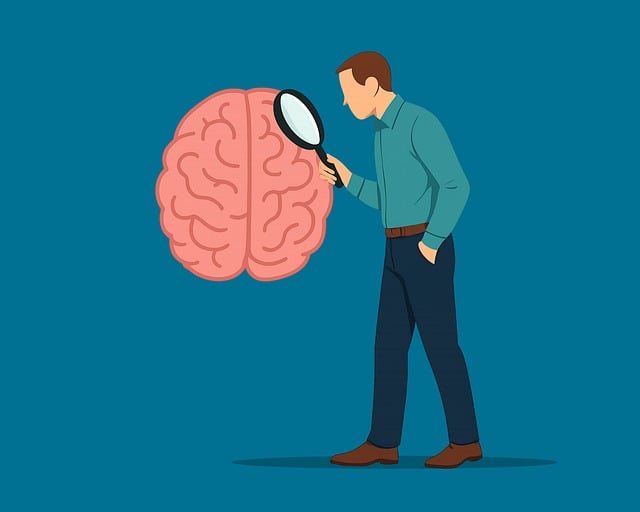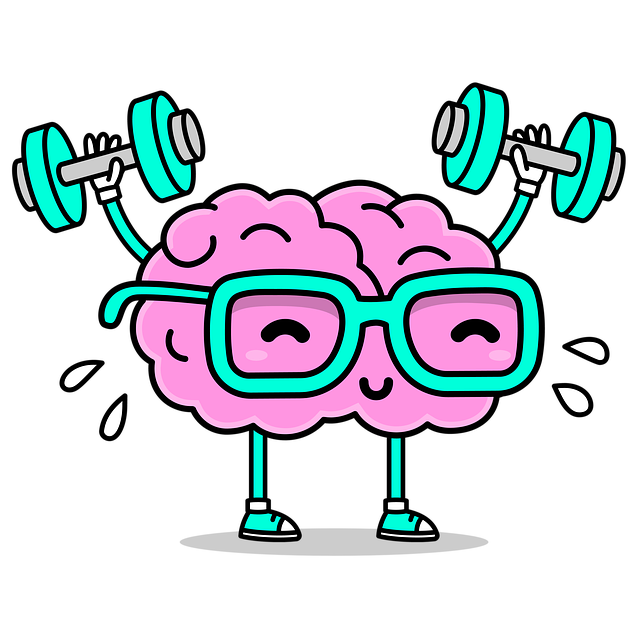Northglenn Anxiety Therapy offers a holistic approach to addressing social anxiety, focusing on empowering individuals through tailored coping strategies, community education, and expert guidance. They help clients build social confidence by teaching effective communication skills, stress reduction techniques, and mental health awareness, fostering improved emotional regulation and overall well-being. Their evidence-based methods include role-playing scenarios, cultural competency training, and positive thinking exercises, enabling individuals to confidently engage in community life and form meaningful connections.
Social skills training is a powerful tool for managing mental health conditions, particularly anxiety. This article explores the interconnectedness of social interactions and mental well-being, focusing on strategies tailored to individuals with anxiety disorders. We delve into the challenges they face in social settings and highlight the transformative role of Northglenn Anxiety Therapy in skill development. Additionally, practical tips are provided for building confidence and fostering long-term growth within the community.
- Understanding the Link Between Social Skills and Mental Health
- Identifying Challenges in Social Interaction for Individuals with Anxiety
- The Role of Northglenn Anxiety Therapy in Skill Development
- Practical Strategies for Building Social Confidence
- Supporting Long-term Growth and Community Engagement
Understanding the Link Between Social Skills and Mental Health

In the realm of mental health support, Northglenn Anxiety Therapy has recognized the profound impact of social skills on overall well-being. The link between social proficiency and mental health is a intricate tapestry, where effective communication and interpersonal connections can serve as powerful tools in managing conditions like anxiety and depression. By understanding this connection, therapists facilitate clients’ journeys towards improved mental wellness.
This approach extends beyond traditional therapy sessions; it involves equipping individuals with coping skills development strategies tailored to their unique experiences. Through initiatives such as Mental Wellness Podcast Series Production and Public Awareness Campaigns Development, the community gains access to valuable resources that promote open dialogue about social interactions and their influence on mental health. This holistic effort contributes to a more informed and supportive society.
Identifying Challenges in Social Interaction for Individuals with Anxiety

Many individuals with anxiety struggle to navigate social interactions due to their condition’s unique impact on emotional regulation and cognitive processes. Northglenn Anxiety Therapy identifies challenges such as excessive worry, fear of judgment, and difficulty initiating or maintaining conversations as common barriers. These symptoms can lead to avoidance of social settings, which further exacerbates feelings of isolation and loneliness.
Empathy Building Strategies and Anxiety Relief techniques are essential tools in helping these individuals overcome their fears. Through therapy, they learn to manage their anxiety responses, enabling them to participate more fully in social activities. Emotional Regulation skills allow them to better understand and express their emotions, fostering deeper connections with others.
The Role of Northglenn Anxiety Therapy in Skill Development

Northglenn Anxiety Therapy plays a pivotal role in empowering individuals with mental health conditions to develop essential social skills. Through tailored programs and expert guidance, they help clients navigate challenging interactions and build confidence in various social settings. The therapy focuses on teaching effective coping skills development, encouraging healthy self-care practices, and imparting stress reduction methods that are uniquely suited to each individual’s needs.
This holistic approach ensures that participants not only learn to manage their anxiety but also gain the resilience needed to engage in meaningful social exchanges. By fostering a supportive environment, Northglenn Anxiety Therapy enables clients to practice new techniques, receive constructive feedback, and gradually work towards improving their overall social functioning and well-being.
Practical Strategies for Building Social Confidence

Building social confidence is a vital step in managing mental health conditions, such as anxiety or depression. At Northglenn Anxiety Therapy, we emphasize practical strategies to empower individuals in navigating social interactions with ease and self-assurance. One effective approach is role-playing scenarios where clients practice conversations, learn body language cues, and develop assertiveness skills. This technique allows them to face their fears in a safe environment, gradually building resilience.
Additionally, mental health awareness training for both the individual and their support network is invaluable. Encouraging open communication and educating loved ones about specific conditions fosters understanding and creates supportive environments. Healthcare provider cultural competency training also plays a crucial role, ensuring that professionals are equipped to offer empathetic, culturally sensitive care tailored to diverse populations. Instilling positive thinking and reframing negative thoughts can further enhance social confidence, as it promotes a sense of optimism and self-belief.
Supporting Long-term Growth and Community Engagement

At Northglenn Anxiety Therapy, we recognize that social skills training is a cornerstone in supporting individuals with mental health conditions for long-term growth and community engagement. Beyond addressing specific symptoms, our approach focuses on empowering clients to navigate social environments with confidence and resilience. By integrating evidence-based practices tailored to individual needs, we foster emotional regulation skills that extend far beyond therapy sessions.
This holistic strategy includes risk management planning for mental health professionals, ensuring a supportive framework both within the therapeutic setting and in the broader community. Through Social Skills Training, clients learn effective communication techniques, improve their ability to read social cues, and develop coping strategies for managing anxiety or distress in various social situations. Ultimately, this preparation equips them to actively participate in community life, build meaningful connections, and enhance their overall well-being.
Social skills training, as offered by Northglenn Anxiety Therapy, plays a pivotal role in enhancing mental health for individuals struggling with conditions like anxiety. By understanding the connection between social skills and mental well-being, we can equip people with practical strategies to navigate social interactions more confidently. This comprehensive approach, combined with long-term support, fosters community engagement and enables individuals to thrive in various settings. Northglenn Anxiety Therapy’s expertise ensures that those seeking help gain valuable tools for a more fulfilling and connected life.














